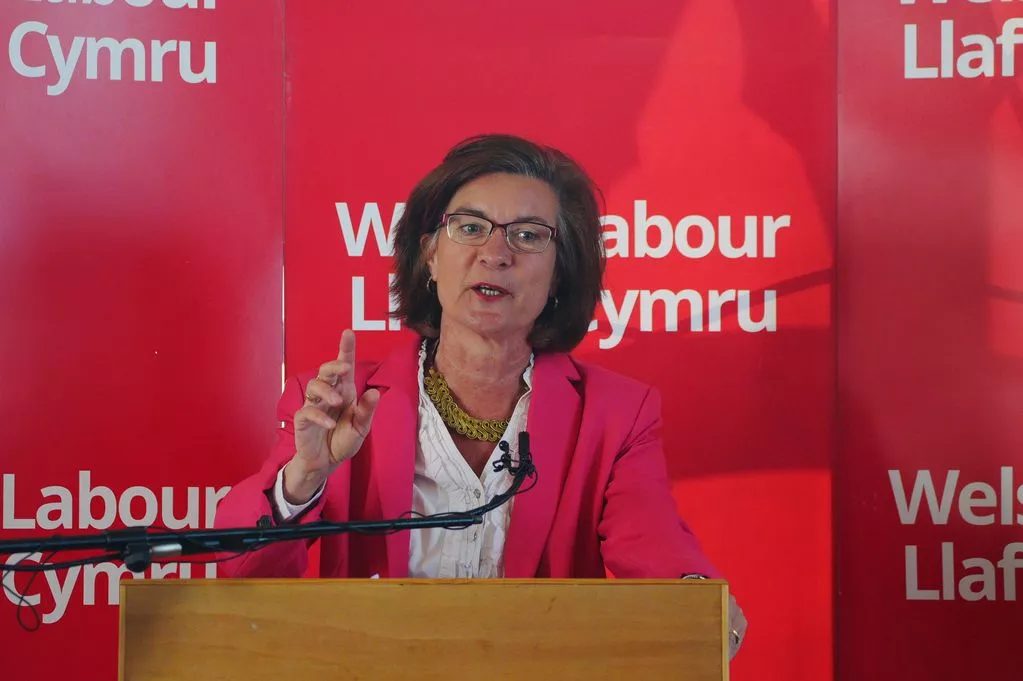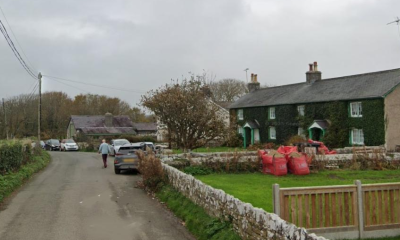Politics
Universal Credit now seven years late

THE ROLLOUT of Universal Credit has been delayed again to 2024.
Over seven years after it was originally supposed to be implemented in full and over a decade after it was first piloted, the scheme has lurched from crisis to crisis in its troubled history.
Universal Credit merges six existing benefits, including housing benefit and child tax credits, into one monthly sum.
The government’s stated aim is to simplify the welfare system, both to help claimants, cut fraud, and encourage work. However, its ultimate effect has been to slash welfare payments to the most vulnerable and plunge claimants into debt as they wait for their first payment of the new benefit.
The fresh delay, to September 2024, was uncovered in an upcoming BBC documentary about the government’s contentious welfare reform. It will add an estimated £500m to the Universal Credit programme, which is already billions over budget.
The delay has arisen because fewer people than expected had signed up to the new system, according to a new BBC documentary, Universal Credit: Inside the Welfare State.
In an excerpt released by the BBC, Neil Couling, the DWP’s director-general for Universal Credit said, in August last year: “We’ve had a lot of anecdotal evidence of people being scared to come to Universal Credit.
“It’s a potentially serious issue for us, in terms of completing the project by December 2023, but I’m urging people not to panic,” he said.
Mr Coulting continues in a subsequent meeting to say: “Three, six or nine months, it doesn’t matter – the headline will be: ‘Delay, disaster’.
“I would say, ‘Go safe, put the claimants first, and I’ll take the beating.'”
This week, the DWP admitted the delay was necessary because the number of people who had moved on to UC was lower than official estimates.
The BBC documentary shows the DWP acknowledging that the reason for the lower-than-expected uptake was the fear that new Universal Credit claimants would lose out.
Gross and ongoing delays in making benefit awards on the new system have plunged people into debt recouped from their benefits due to the waiting period for its first payment imposed by the UK Government.
Universal credit was phased in during 2013.
The benefit was first due for full rollout by April 2017. However, transferring claimants to the new system has been plagued by a series of technical delays. Those delays include a fiasco over IT infrastructure and the failure of the system to account for varying incomes for the self-employed and those employed on casual or zero-hour contracts.
Last week, the UK Government lost a major case on the benefit’s rollout.
In a decision handed down in the Court of Appeal by the Master of the Rolls, Lord Justice Singh, the court ruled transitional provisions relating to the treatment of disabled persons were discriminatory. It found that a severely disabled person who moved from an area where UC had not been rolled out to an area in which it had would be treated less favourably than a person who did not move. In a second case, the court quashed provisions meaning those who migrated ‘naturally’ from Severe Disability Premium to Universal Credit less favourably than those who made the transition under the managed migration scheme.
Last year, former DWP Secretary Amber Rudd said that payment delays of Universal Credit were ‘the main issue’ leading to dependence on foodbanks.
The delay’s announcement follows the publication of a report by the Resolution Foundation
The report notes that the final – and most challenging – phase of the roll-out, involving the transfer of existing benefit and tax credit claimants onto UC, is due to start later this year.
The Foundation states that a marginal average increase of a whacking £1 a week for some claimants ‘masks sizeable groups of families that lose out by large sums, and significant geographical variation across the UK. Thanks to factors such as local rent and earnings levels, and the characteristics of local populations, some parts of the country will be left significantly worse off as the switch to UC goes ahead’.
In areas with a relatively high proportion of single parents, out-of-work single people and disabled people, all of whom fare badly under UC, claimants lose out. Also, while Universal Credit favours working families with high rents, it hits those in areas with below-average rent levels.
The Foundation adds that policymakers in Whitehall, and across the UK, need to consider the impact of Universal Credit at a local level. At exactly the time that policy debates are rightly focusing on what can be done to close economic gaps between parts of the UK, this major welfare reform will be rolled out with very different impacts on those places.
Laura Gardiner, Research Director at the Resolution Foundation, said: “Welcome recent reforms mean that Universal Credit is now set to be marginally more generous than the benefits it is replacing. But this average hides a complex mix of winners and losers, with families in some areas of the UK faring particularly badly.
“As well as making reforms at a national level – such as helping families to overcome the first payment hurdle and offering more flexibility for those with childcare – policymakers across the country need to better understand the effect Universal Credit will have in different places. That understanding should be central to policy debates that are rightly focusing on what can be done to close economic gaps between parts of the UK.”
Welfare minister Will Quince said: “Universal Credit is the biggest change to the welfare system in a generation, bringing together six overlapping benefits into one monthly payment and offering support to some of the most vulnerable people in society.
“It is right that we revisit our forecasts and plan, and re-plan accordingly – ensuring that the process is working well for people on benefits.
“Claimants will not lose money due to this forecasting change.”
Education
NEU Cymru publishes manifesto to save education in Wales

NATIONAL EDUCATION UNION CYMRU has published a new manifesto outlining its vision to “Save Education in Wales” ahead of the Senedd elections in May.
The union says the document is designed to help political parties ensure their policies reflect the needs of the education workforce and learners across Wales.
Launching the manifesto, Nicola Fitzpatrick, Wales Secretary of the National Education Union, said education must be at the heart of the next Welsh Government’s priorities.
“NEU Cymru members are clear that education must be a priority for the next Welsh Government. May’s election is important — this is our chance to vote for education in Wales,” she said.
She identified funding, workforce trust and tackling child poverty as key issues.
“Funding is clearly a priority for NEU Cymru, along with trusting the workforce and ending child poverty. The next Welsh Government needs to invest in education to ensure that we are supporting the next generation. But we can’t be complacent,” she added.
The union also set out areas it believes must be protected, including opposition to academisation.
“There are parts of the education system that we need to protect — no academisation of schools, for example, because in Wales children are the priority, not private interests. Free school meals for all our primary school children must be protected. And our Welsh values are important too — protecting diversity, equality and inclusion.”
The manifesto sets out a series of policy proposals aimed at strengthening public education in Wales as parties prepare their campaigns for May’s vote.
News
Vote.wales: Information website launched to give people voting confidence

Vote.wales to host all essential election information for the Senedd election
A BRAND new voter information website, vote.wales, has been launched today (2 March) by the Electoral Management Board for Wales, part of the Democracy and Boundary Commission Cymru.
Vote.wales is the first website of its kind in Wales and tells people everything they need to know about the election, including advice about voting, information about the Senedd, and a postcode search function to provide tailored local information.
The website holds information about who can register to vote, how voting works in polling stations, as well as postal and proxy voting, and what accessibility support people can expect when they go to vote.
A postcode search function on vote.wales allows voters to see which of Wales’ 16 new constituencies they will be voting in, as well as telling them where their local polling station is located.
Once nominations have closed, the website will also inform voters which political parties and independent candidates are standing in their area.
The website explains how the Senedd works and what it does, highlighting which policy areas are devolved to the Senedd and which remain the responsibility of the UK Parliament. It also sets out the difference between the Senedd and the Welsh Government.
Further developments are expected in the coming weeks. In a first for Welsh elections, voters will soon be able to access detailed accessibility information about their local polling station. Political parties and independent candidates will also be able to publish their election leaflets on the platform, so voters can see not only who is standing but what they stand for.
Following the election, vote.wales will publish the full election results.
Commenting on the launch, Shereen Williams MBE OStJ, Chief Executive of the Democracy and Boundary Commission Cymru, said:
“An important election is coming on 7 May, and vote.wales is the place to go to find out all about it.
“We know that people across Wales are looking forward to making their voices heard at this election, but many people don’t feel they have all the information they need before they go and vote.
“If you have questions about this election, then head to vote.wales. Voting confidence starts here.”
Health
Welsh Labour launches Senedd campaign with £4bn hospital pledge

WELSH LABOUR leader Eluned Morgan has launched her party’s Senedd election campaign with a headline pledge to invest £4bn in new hospitals, as the party faces growing political competition ahead of the May vote.
Speaking to party members and candidates in Newport on Monday (Mar 2), Morgan set out five central pledges focused on the cost of living, jobs, the NHS, the environment, and social fairness, presenting what she described as a long-term plan for Wales.
The announcement comes at a politically sensitive time, with health services widely expected to be a defining issue in the election and opposition parties seeking to capitalise on public dissatisfaction with NHS waiting times and performance.
Major NHS investment promise
At the centre of Labour’s campaign is a proposed £4bn Hospitals for the Future Fund, which would modernise parts of Wales’ ageing NHS estate over the next decade.
The funding would include replacing the University Hospital of Wales in Cardiff, redeveloping Wrexham Maelor Hospital, and supporting a new hospital development in West Wales.
Eluned Morgan said: “The NHS is not just a service. It’s a promise. And we need to renew that promise. Not with slogans, but with the biggest investment programme in our history.”
She said the programme would ensure hospitals were “fit for modern medicine” while improving working conditions for staff and patient access.
Mental health and access reforms
Alongside capital investment, Labour also announced plans to expand same-day mental health services across Wales through an “open access” model, building on the NHS 111 press 2 system.
Demonstrator projects would be rolled out across all health boards, with the Welsh Government claiming Wales could become the first country to offer such a model nationwide.
Five campaign pledges
Morgan outlined five key priorities:
• Tackling the cost of living, including a £2 bus fare cap and expanded childcare
• Jobs for the future through renewable energy and retraining guarantees
• A new NHS deal including hospital investment and women’s health initiatives
• Environmental protection including river clean-ups and tackling fly-tipping
• A fairer society with homelessness action, pay rises for low-paid workers, and improved schools
Political dividing lines
The Labour leader used her speech to draw sharp contrasts with rival parties, criticising Reform UK as offering “rage” without solutions and accusing Plaid Cymru of lacking detail behind policy proposals.
“We are seeing a politics that is louder than it is wise,” she said. “Plaid always has a complaint. Welsh Labour has the plan.”
Welsh Liberal Democrat Leader Jane Dodds MS said: “After 27 years in power, Welsh Labour’s record speaks for itself. Wales sits at the bottom of too many league tables, whether it’s education, health or wages.
“Today we heard more promises. But many of these are targets Welsh Labour have already failed to meet in previous terms. The problem isn’t a lack of pledges; it’s a lack of delivery.
“The people of Wales are tired of excuses and recycled announcements. They want a fresh start, new energy and a different style of leadership. The Welsh Liberal Democrats are ready to offer that change, focused on delivery, accountability and putting communities first.”
Election context
Labour has governed Wales since devolution began in 1999, but the upcoming election is widely expected to be more competitive than previous contests, with polling suggesting a fragmented political landscape and growing support for challenger parties.
Health services, cost-of-living pressures and economic confidence are expected to dominate the campaign in the coming months.
Further policy announcements are expected in the weeks ahead.
-

 Health7 days ago
Health7 days agoHealth services row escalates as MSs demand action over Withybush and Bronglais
-

 News6 days ago
News6 days agoWelsh Government criticised after Russian-linked drone image used in defence announcement
-

 Crime6 days ago
Crime6 days agoMilford Haven pensioner admits sexually assaulting two shop workers
-

 Business6 days ago
Business6 days agoCouncil reviewing complaints over Computer Solutions Wales as concerns continue
-

 Health6 days ago
Health6 days agoPetition calling for Withybush intervention nears 5,000 signatures
-

 Business7 days ago
Business7 days agoBosherston Bistro 10pm alcohol licence granted by council
-

 News5 days ago
News5 days agoHoax 999 call sparks massive lifeboat and helicopter rescue — man arrested
-

 News7 days ago
News7 days agoSenedd backs assisted dying legislation in historic vote
























